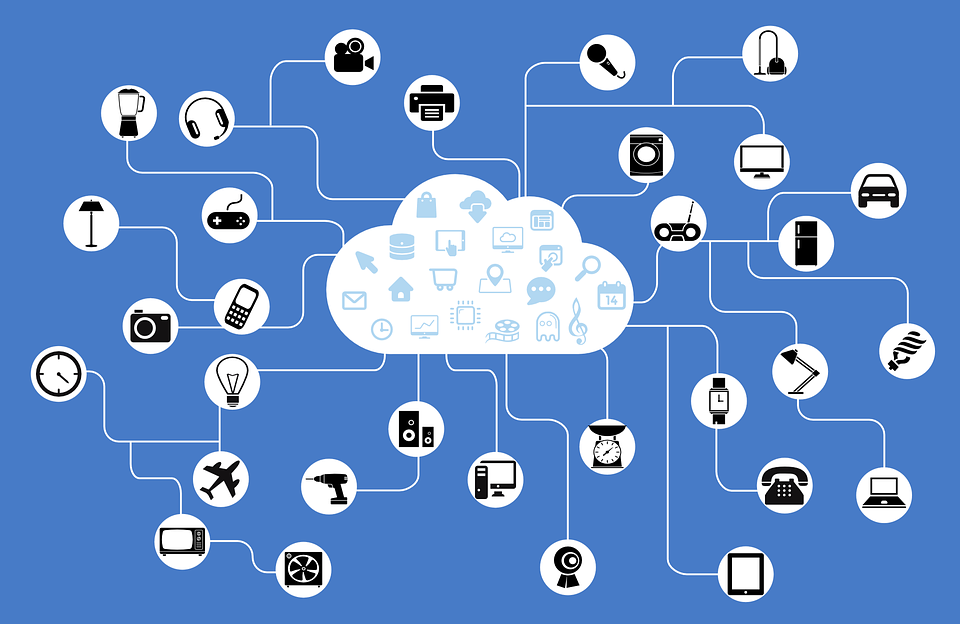Nearly nine out of ten people in the United States have internet access, and by 2020, there will be more than 50 million connected devices worldwide. Already available in the marketplace are wearable devices that can detect breast cancer in skin cells, connected toilets that can measure blood pressure and glucose levels, biochips that can identify water contaminants, and even disposable adult diapers with sensors that send a text message to nursing staff when the diaper is ready to be changed. The Internet of Things (IoT) is changing how we live our lives by the minute, but in order to realize its full potential, our country must develop a national strategy to plan for its future. Such a plan will enable developers to capitalize on IoT potential, and ensure the United States remains an innovative hub that encourages bright minds and fosters new ideas.
The proliferation of connected devices is undoubtedly a net positive, but it does force us to consider a number of issues, chief among them balancing consumer privacy concerns with the need to continually innovate. For instance, as more IoT devices come online, so too will the amount and variety of data that is collected, transferred, and stored.
In addition to safeguarding consumer privacy, developers are working to mitigate existing cybersecurity vulnerabilities in IoT. Users now store financial, health, personal, and business information on their devices, and in an era of ever-expanding connectivity, it is conceivable that an unsecure connected device, like a home thermostat, could give hackers access to the owner’s smartphone, exposing personal information like their fingerprints, bank accounts, or credit card numbers. Even worse, connected medical devices intended to provide real-time updates to doctors could prove fatal. In fact, hackers have already demonstrated that they can adjust the frequency — or turn off entirely — a patient’s pacemaker. The security concerns are real, but developers are implementing best-practices like encryption to protect users and grow their businesses.
Later today, the Senate Commerce Committee will consider S. 2607, the “Developing Innovation and Growing the Internet of Things Act” (DIGIT Act), and if signed into law, will convene a diverse set of stakeholders “to plan for and encourage the proliferation of the Internet of Things.” The DIGIT Act creates a working group tasked with examining different aspects of the IoT ecosystem, including spectrum, the regulatory environment, consumer protection, and privacy and security considerations.
As drafted, the bill calls for input from a broad swath of stakeholders including both governmental and non-governmental entities. This is particularly encouraging given the variety of sectors IoT is taking root in. As the working group gathers stakeholder input, it should give careful consideration to any unintended consequences its recommendations might create given the disparate voices at the table. Software developers understand just how critical good data stewardship is to growing their businesses and work hard to take the necessary steps to protect consumer data. Without question, the DIGIT Act and its working group are a great initial step, but what the working group should not do is recommend heavy-handed regulatory approaches to IoT. Up to this point, policymakers in Washington have correctly taken a “hands-off, light-touch” approach to our digital ecosystem. This approach has enabled the United States to become the economic and innovative hub it is today, and if we are to continue down this path, policymakers need to act with great care to encourage, not discourage, outside-the-box thinking.
The need to plan for the future of IoT is clear, and the bill before the Senate Commerce Committee is a good start. As Americans increasingly turn to IoT technologies, policymakers are playing catch-up. Indeed, there are serious concerns around issues like privacy, security, and interoperability that policymakers are trying to grapple with, but these questions should not deter us from helping IoT realize its potential. Developers are working hard to find appropriate solutions, and Washington would do well to avoid handing down hasty and knee-jerk rules that can hurt even the largest companies, to say nothing of the the stifling effect they could have on startups hoping to break into the space.
From the Industrial Revolution to the Computer Age, the United States has been at the forefront of global innovation for the past two centuries. The Internet of Things represents a new frontier for American ingenuity, inventiveness, and leadership. Policymakers must ensure the regulatory environment is conducive to innovation while simultaneously protecting American privacy and security interests. The DIGIT Act is a good start.
Jarrod Nagurka
U.S. Policy and Government Relations Association





